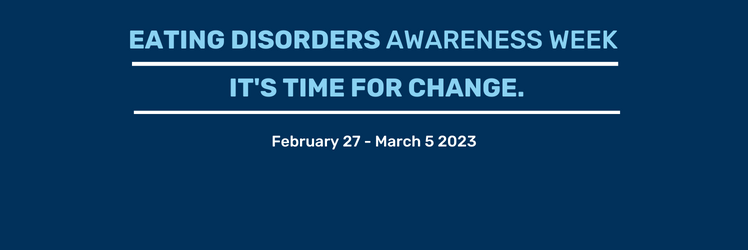Eating Disorders in the Workplace: How to Handle the Tough Stuff
I’ve been working professionally for nearly 20 years. I’ve also been in recovery from anorexia since 2010 and every day is a struggle. Outwardly, this struggle isn’t always visible, but it’s there. And it’s hard. What makes it harder is having a bad day and feeling alone. I attribute this loneliness to the fact that at work, people regularly discuss symptoms of illness or conditions they feel are acceptable: Pregnancy, surgery, addiction, even Covid-19. Unfortunately, it’s not common or comfortable to go to your boss and say “hey, I’m sorry I cried when you gave me feedback. I’m having a bad recovery day.”
Recovery from an eating disorder is like recovery from anything else: It’s on-going, takes work, and requires support. You have symptoms, side effects and set-backs. The environment you work in plays a huge part in how you manage your recovery, too. If your workplace is supportive, collaborative, and inquisitive, your recovery can nicely cohabitate with your career. If your workplace is stressful, hierarchical, and highly controlled, you may have trouble balancing both. The reason why is because people with eating disorders have a predisposition to stress, including high levels of sensitivity, a desire to be in control, and often get hung up on trivial details. So, when someone in recovery is working within a triggering environment, staying on track with emotional and physical well being becomes challenging.
I wish I could tell you organizations will change to be more inclusive to eating disorder recovery. I can’t. What I can do is help you, or your loved ones, empower themselves at work. Here are some ideas for putting your recovery first while at work:
Provide Ideas: If your organization is big on weight-loss activities or oriented conversations, suggest alternatives for team-building. Send an email to your boss or the coordinator educating them on the potential dangers to those who are struggling. Suggest alternative language for company newsletters or suggest other group activities (like bowling or an improv class).
Alleviate Stress: Focusing on your own wellness is imperative. This means not working without breaks, or convincing yourself that you’re too busy for doctor’s appointments, or not taking time to meditate or exercise. Your health and recovery matters. If you don’t put yourself first, no one else will.
Be Honest: Humans are not mind readers. Usually, no one knows something is bothering you until you say something. This is especially true with topics like eating disorders. Try the following conversation starter with your boss:
- “This is hard for me to discuss, but I’ve been struggling lately. I’ve been in recovery for an eating disorder and I’ve been under a lot of stress that is impacting the ability to be my best self. Can you help me reprioritize so I can focus on feeling better?”
Consider Leaving: If you’ve expressed your feelings and nothing is changing, it may be time to leave your organization. This is especially true if you feel like your work environment is harming your recovery efforts. There is no shame in doing what’s best for your health and wellbeing. Remember, you come first.
Kerry O’Grady is the faculty director for the Master’s in Public Relations and Corporate Communications program at Georgetown’s School of Continuing Studies. She’s also an Associate Professor of the Practice. Dr. O’Grady is a regularly sought-after media expert, as seen in The Washington Post, The New York Post, The Telegraph, and on ABC News’ digital podcast “Uncomfortable,” to name a few. An award-winning practitioner, she’s been honored with President’s Club (Gannett, Inc.), Marketing Campaign of the Year Finalist (Meredith Corp.), the Public Relations Society of America – NY top “35 Under 35” winner, and NYU’s “Outstanding Service” award. An eating disorder survivor and former fitness blogger, she’s been the National Wellness Liaison for The National Eating Disorders Association since 2018. In this role, she assists with media relations, as well as nationwide education on body neutrality within the fitness industry.





